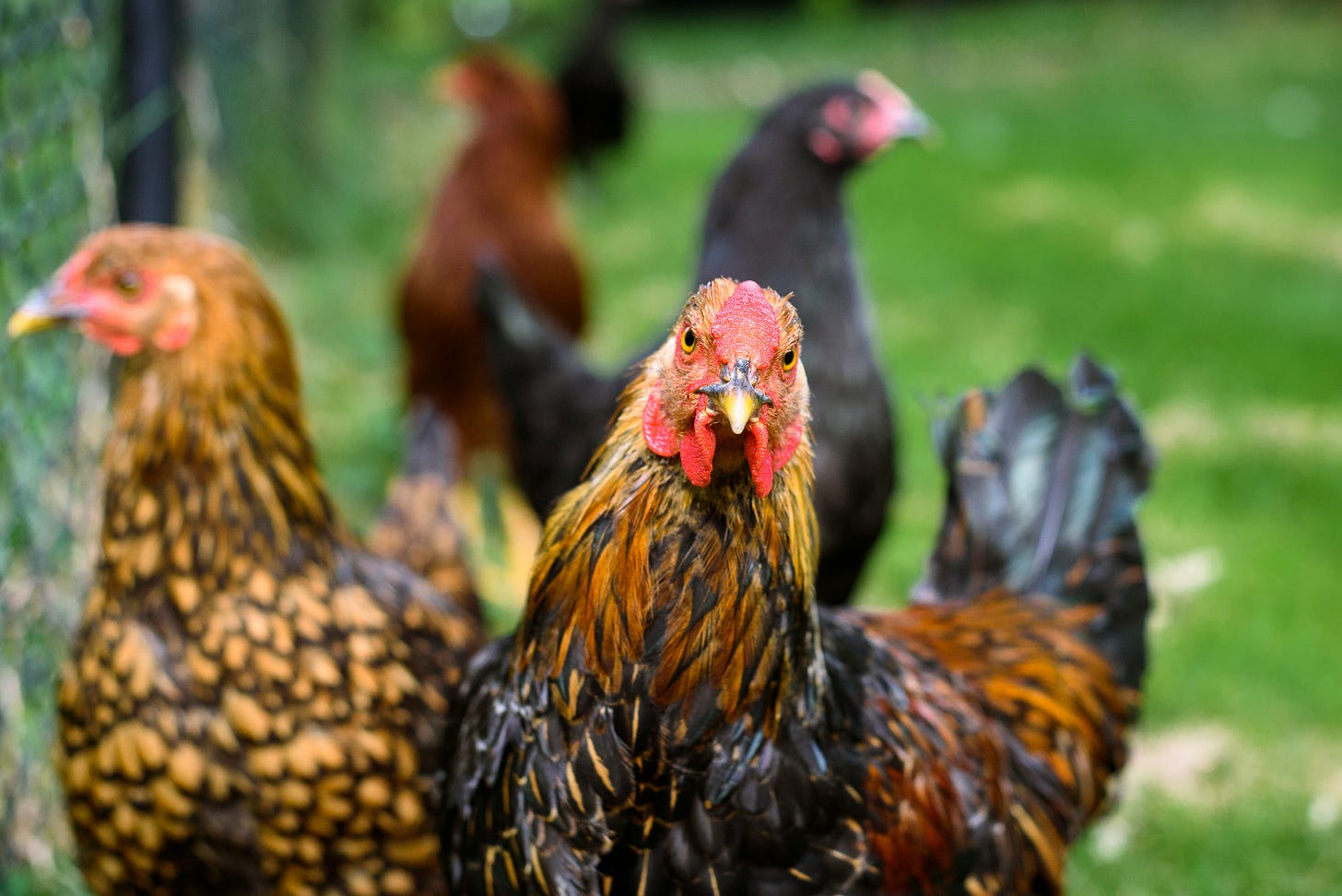Avian Flu Outbreak Near Lisbon Prompts Health Alert
The spread of avian influenza, commonly called bird flu, has raised concerns among governments and the poultry industry after it ravaged flocks around the world in recent years.

What?
The World Organisation for Animal Health (WOAH) issued a warning on Monday following the detection of an H5N1 avian flu outbreak at a poultry farm near Lisbon.
The virus, which poses a significant threat to both poultry and potentially humans, was identified on January 3 in a flock of 55,427 birds in São João das Lampas, Sintra, Lisbon District.
All the birds in the flock have now died or been slaughtered, according to the Directorate-General for Food and Veterinary (DGAV).
The Portuguese authorities, in coordination with international health organizations, are monitoring the outbreak to prevent its spread.
The Directorate-General for Health (DGS) has reported being notified by the Directorate-General for Food and Veterinary Medicine (DGAV) of an outbreak of Highly Pathogenic Zoonotic Influenza, subtype H5N1, at a commercial laying hen farm in the municipality of Sintra.
“Veterinary and Health Authorities are implementing the necessary measures for the control and eradication of this outbreak,” the statement reads.
According to the DGS, “so far, there have been no reports of individuals showing symptoms or signs suggestive of human infection by the H5N1 virus, nor have any cases been reported on the platform supporting the National Epidemiological Surveillance System (SINAVE).”
The statement further explains that “the transmission of the H5N1 virus to humans is a rare event, with sporadic cases recorded globally. However, when it does occur, the infection can present with a severe clinical profile.”
“While the risk to the general population is very low, transmission mainly occurs in occupational settings through direct or close contact with infected animals or their tissues, feathers, excrement, or by inhalation of the virus in close proximity to infected animals or contaminated environments. The virus is not transmitted through the consumption of meat,” the statement adds.
Earlier this week, the U.S. recorded its first human death from bird flu, a grim milestone that comes as at least 67 cases have been recorded in the country.
The patient, who was over 65 and had underlying medical conditions, was hospitalized in Louisiana in December; the case was considered the country’s first severe human H5N1 infection.
What is Avian Flu?
Avian flu is a viral disease that affects both domestic and wild birds. It is highly contagious and can lead to severe outbreaks with significant mortality rates, particularly in poultry. According to Portugal's Directorate-General for Food and Veterinary Medicine (DGAV), avian flu viruses are categorized into two types:
High Pathogenicity Avian Influenza (HPAI): Detected in the current outbreak, HPAI spreads rapidly and is associated with mortality rates of up to 100% within 48 hours.
Low Pathogenicity Avian Influenza (LPAI): Typically causes mild disease and may go unnoticed.
Signs of Avian Flu in Birds
Key indicators of infection include sudden death in healthy birds, repeated daily mortality of more than 5% of a flock, swollen heads, and watery eyes.
For example, in a flock of 50 chickens, losing three birds on consecutive days could signal an outbreak. Such symptoms warrant immediate veterinary attention.
Avian flu can infect humans, primarily through close contact with infected birds, whether alive or dead. This includes handling infected birds or their droppings.
The United Kingdom’s National Health Service (NHS) warns that symptoms in humans resemble those of seasonal flu and can include fever, runny nose, conjunctivitis, and in severe cases, pneumonia or encephalitis.
The incubation period for the virus in humans ranges from 2 to 4 days, though some cases may take up to 8 days to manifest.
In severe instances, the illness can progress to respiratory failure and be fatal. There is no evidence that consuming poultry meat or eggs transmits the virus to humans.
Treatment and Prevention
Seasonal flu vaccines do not protect against avian flu. Antiviral treatments are available, but their effectiveness depends on early administration at the onset of symptoms. Preventive measures, such as avoiding direct contact with wild or infected birds, are critical.
The DGAV emphasizes the importance of vigilance among poultry farmers and public awareness to mitigate risks.
While avian flu outbreaks often devastate poultry industries, effective containment measures can reduce human and animal exposure.




Absolutely ridiculous. Fearmongering yet again...and a tragic waste to kill 55,000+ birds unnecessarily. This really has to stop.